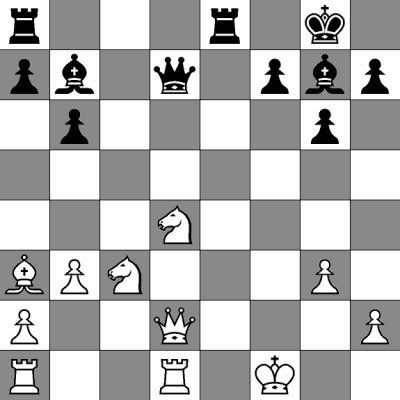My Icelandic isn’t that great, but I think this means that the 11th World Chess Champion Bobby Fischer has died. The tragedy is that he never got help for his severe mental problems and spent half his life as an unhappy recluse, when things could have been so different.
Of course, his chess life died a long time ago, but it still evokes considerable emotion in the chess world. To me, this is perhaps the coolest game of his:
[Event “US Championship 1963”]
[Result “0-1”]
[White “Robert Eugene Byrne”]
[Black “Robert James Fischer”]
1. d4 Nf6 2. c4 g6 3. g3 c6 4. Bg2 d5 5. cxd5 cxd5 6. Nc3 Bg7
7. e3 O-O 8. Nge2 Nc6 9. O-O b6 10. b3 Ba6 11. Ba3 Re8 12. Qd2
e5 13. dxe5 Nxe5 14. Rfd1 Nd3 15. Qc2

Fischer has chosen the most active moves in a rather nondescript opening, and it’s time for the sacrifices:
15… Nxf2 16. Kxf2 Ng4+ 17. Kg1 Nxe3 18. Qd2 Nxg2 19. Kxg2

It’s very impressive to be able to calculate even a shortish sequence like this to a position like this and be able to judge it favourable. It looks quiet, but black’s long-range pieces will now finish the game in short order.
19… d4 20. Nxd4 Bb7+ 21. Kf1 Qd7 0-1

There would follow something like 22. Qf2 Qh3+ 23. Kg1 Re1+ 24. Rxe1 Bxd4 25. Qxd4 Qg2# (or else white dumps a load of material to boringly avoid mate). Even the final mate idea is just so… simple.
Fischer was everyone’s favourite because his play was so elegant and logical in a not-needlessly-complicated way, even to beginners. Like it was with Capablanca, everything seems “obvious” once you understand it (apart from the combinations, of course). This kind of clarity is the most beautiful thing in chess, and Fischer’s games speak the joy of discovering and being able to actually create it. Thanks for the games.

